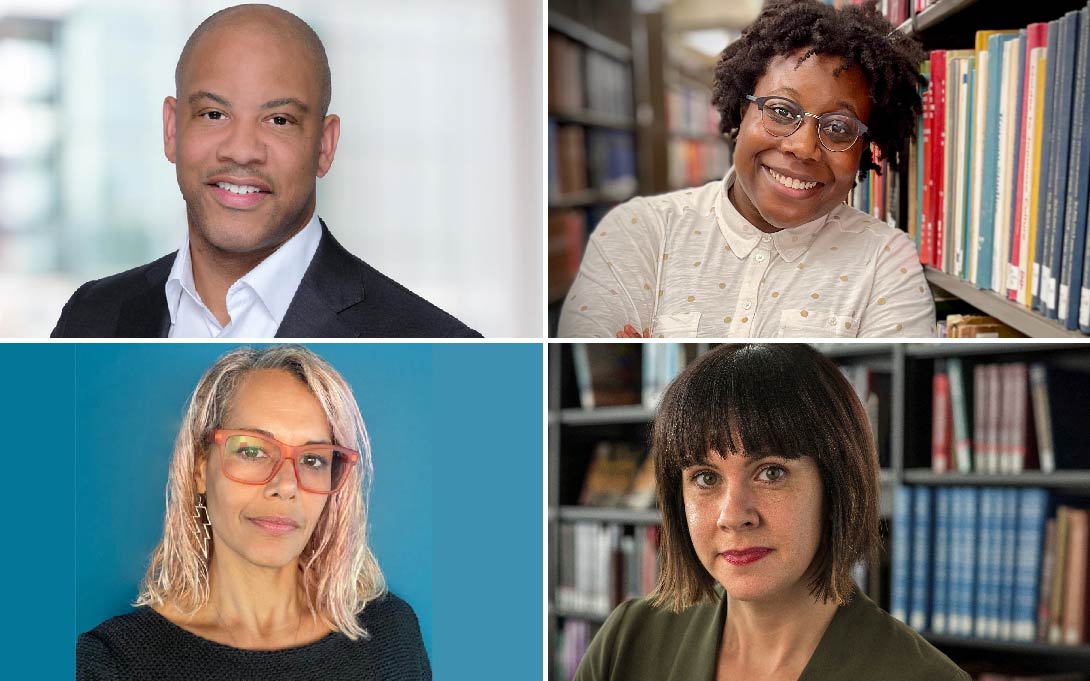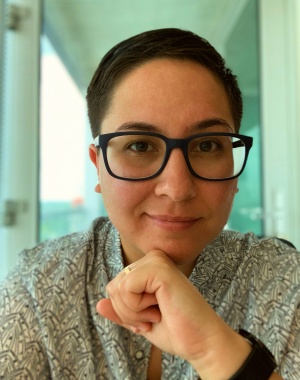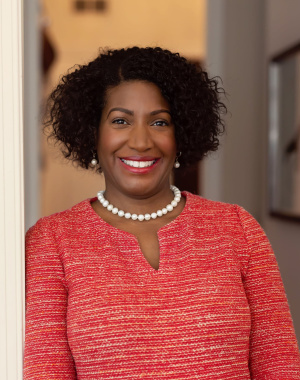
The Ford School’s Center for Racial Justice proudly welcomes Dr. Moya Z. Bailey, Dr. Angela S. García, Dr. Clarence Wardell III, and Diane J. Wright as Visiting Fellows for the 2023-24 academic year.
The Visiting Fellows Program, the signature initiative of the Center for Racial Justice, represents a unique opportunity to work collaboratively with a diverse array of policy thinkers to advance racial justice.
“The vision for the Visiting Fellows Program stemmed from the Center’s desire to uplift and support the perspectives and contributions of racial justice changemakers who span diverse disciplinary backgrounds,” said Dr. Celeste Watkins-Hayes, dean of the University of Michigan’s Gerald R. Ford School of Public Policy and founding director of the school's Center for Racial Justice.
To that end, the Center’s Visiting Fellows Program offers a cohort of racial justice leaders, activists, artists, advocates, and scholars a prestigious, highly competitive fellowship designed to recognize their transformative work to date and provide opportunities to strengthen their impact within the policy landscape.
“From disability justice and immigration to racial and health equity, we are honored to support the groundbreaking work of practitioners, scholars, and advocates focused on critically important issues at the intersection of race and policy,” said Dr. Dom Adams-Santos, managing director of the Center for Racial Justice.
This year's cohort was generously supported by the Andrew W. Mellon Foundation and the Hawkins Family.
On Tuesday, September 26, join the Center for Racial Justice in extending a warm welcome to the AY 2023-24 Visiting and Postdoctoral Fellows at the CRJ Open House in Weill Hall. This event will be a great opportunity to connect and engage with our community and learn about the impactful work ahead! A reception will follow brief presentations from the group. This event is open to the public.
Dr. Moya Z. Bailey is an associate professor at Northwestern University. She is the founder of the Digital Apothecary and co-founder of the Black Feminist Health Science Studies Collective. Her catalyst project, Misogynoir in Medicine, is a three-part documentary series that investigates the experiences of Black women providers, patients, and advocates within the United States healthcare system, and to propose new policies and protocols addressing deep disparities in care.
Dr. Angela S. García is an associate professor at the University of Chicago’s Crown Family School of Social Work, Policy, and Practice. Her catalyst project and second monograph, Enduring Illegality: Time and the State of Waiting in Undocumented Middle Life, centers the temporal dimensions of “illegality” and stems from the recognition that time is an irreplaceable form of human capital.
Dr. Clarence Wardell III currently serves as Senior Program Officer on the Economic Mobility and Opportunity team at the Bill & Melinda Gates Foundation. In this role, Wardell leads efforts to foster innovation to improve economic outcomes for low-income individuals in the United States. His two-fold catalyst project includes a co-authored monograph with Dr. Kim Leary that leverages their experiences designing and leading key elements of the Biden-Harris Administration’s equity initiatives, as well as developing policy case studies that examine key aspects of the Administration’s historic efforts to advance racial equity.
Diane J. Wright is a biracial, invisibly disabled Canadian-American filmmaker, author, and disability advocate of Afro-Caribbean descent. Her catalyst project, a book manuscript, meaningfully connects her disability justice work with the history of the African Diaspora to create an interwoven, detailed view of how and why Black autistic lives continue to be overlooked, underserved, misunderstood, persecuted, institutionalized, incarcerated, murdered, and systemically erased.
About Our Funders
The Andrew W. Mellon Foundation is the nation’s largest supporter of the arts and humanities. Since 1969, the Foundation has been guided by its core belief that the humanities and arts are essential to human understanding. Through our grants, we seek to build just communities enriched by meaning and empowered by critical thinking, where ideas and imagination can thrive.
Neil and Annmarie Hawkins have been active for decades in disability advocacy and services as professionals and as recipients of services, especially through the experiences of their younger daughter and her disabilities, including 30+ years of schooling and community living. Through their experiences, they have gained insights and a strong desire to help improve disability-related policies in the USA and in Michigan. It is hoped that the Fellows can help deliver thought leadership and action that results in just and equitable living for these important members of our society.
About the Center for Racial Justice
The Center for Racial Justice is an innovative and cross-disciplinary hub in which social justice changemakers, scholars, and students work collaboratively to develop new tools and strategies in the pursuit of racial justice, resulting in better policy solutions and the cultivation of the next generation of high-impact leaders and thinkers. Housed at the Gerald R. Ford School of Public Policy at the University of Michigan, the center brings changemakers—organizational leaders, activists, artists, policy advocates, and policymakers—in direct and sustained conversation with some of the top scholars and students working at the intersection of race and public policy.


